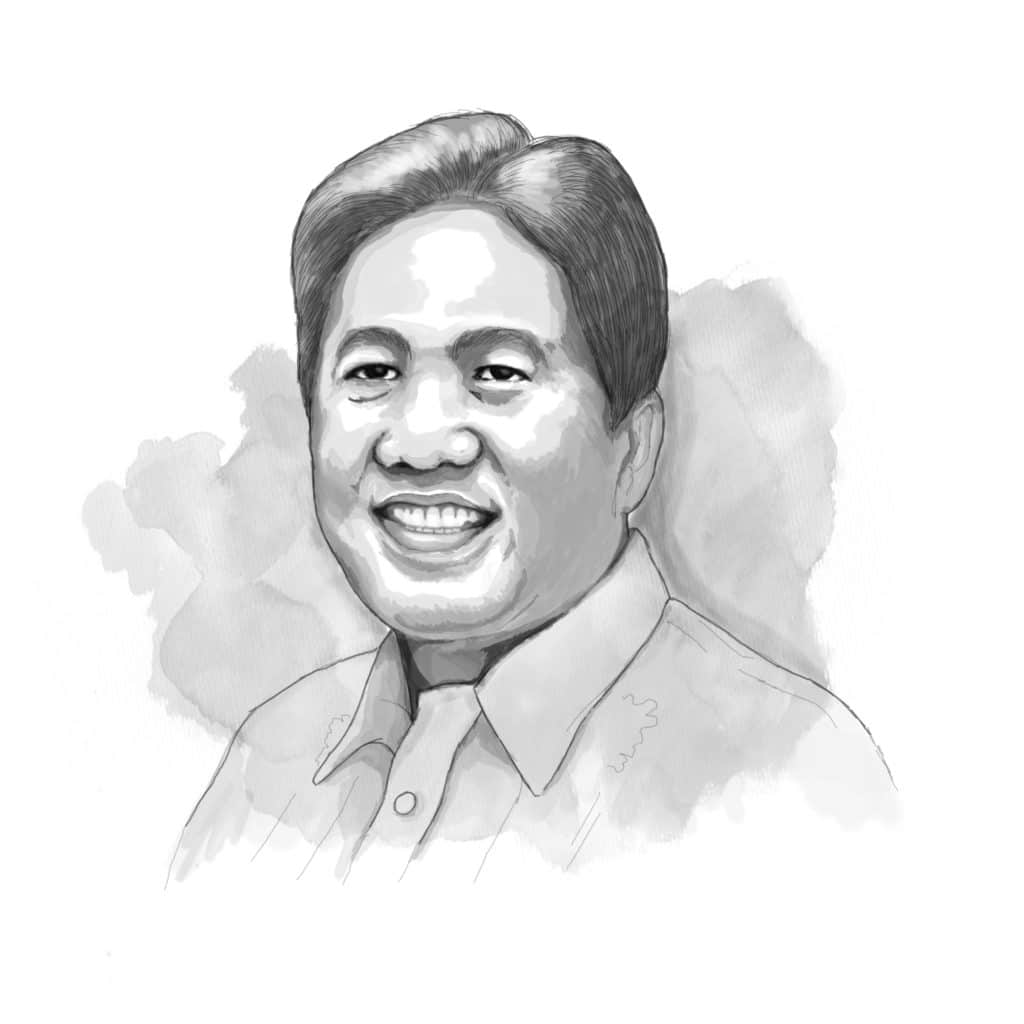Mayor Vico Sotto applies Flywheel Principle in leading Pasig City's good governance quest
By Sonny Coloma
ENDEAVOR

In the run-up to the Barangay and Sangguniang Kabataan elections (BSKE) on Oct. 30, 2023, the 10-day campaign period begins today, Oct. 19. Pasig City Mayor Vico Sotto declared that he was taking an “extreme stance” of not endorsing candidates to demonstrate his determination to “break the culture of fear and patronage politics.” He said he wanted to show that the people are free to choose their barangay leaders and that there was no “command from the executive office” of the city government.
Urging the people to “choose wisely,” he shared his own process of discernment and choice, saying that if he was unsure about which candidates were truly “honest, efficient, or diligent,” he would personally pick the newer candidate or the candidate who did not spend much money while campaigning to get elected. The biggest red flag is when a candidate spends an obscene amount of money, Sotto said.
He explained that it is not bad or wrong for a mayor to endorse candidates at the barangay level. His stance is based on his assessment that at this juncture of the city’s political development, “it is better if a mayor does not endorse a candidate at the barangay level.”
To understand the context of this rather unorthodox stance, it must be pointed out that from the get-go, Vico Sotto launched his political career on a five-point platform of people-centric government: “healthcare, housing, scholarships, transparency in the use of public funds, and a resolute fight against corruption.”
At age 29 he ran for mayor in 2019, challenging the erstwhile ruling political family that had been in power for nearly three decades. When asked by broadcaster Karen Davila why he ventured to seek the mayoralty instead of opting for a second term as councilor – and why he mounted his challenge amid evident prosperity of one of the largest cities in Metro Manila – he said: “That’s for the privileged minority, and not for the greater masses of Pasig City who are still yearning to get improved basic services.”
Simplicity and no-frills governance is Vico Sotto’s public service trademark.
Campaigning by walking house-to-house in narrow alleyways or speaking from the back of a pick-up truck, he appealed for support at the grassroots, shaking the hands of residents and tricycle drivers. His campaign tarpaulins did not bear his face – only the pitch: Vico Sotto for Mayor.
Interviewed by the Philippine Rotary Magazine, he disclosed that since age 10, he nurtured a dream of being in public service. From his Jesuit education at the Ateneo, he imbibed the concept of “people for others,” heeding the call “to be engaged in the struggle for justice to protect the needs of the most vulnerable.” He majored in political science and public administration for his bachelor’s and master’s degrees. He said his Ateneo education prepared him well for a career in public service.
Writing in Humans for Ateneo, an online platform of the Sangguniang Mag-aaral ng mga Paaralang Loyola a few months after he became mayor in 2019, he paraphrases from Jim Collins’ concept of The Flywheel Effect as in the bestseller, Good to Great:
“A giant wheel, when you try to push it, nothing will happen. If there are two of you, baka nothing will happen pa rin. But, if there are 10 of you pushing, maybe it will move a little bit. If you get more and more people to help you, and you start to strategize, baka dapat may lever dito, may maghatak dito, dito yung strategic angle to push the wheel – then eventually the wheel will move an inch or two, will start to move a foot. Eventually, it will start to increase its speed. When it starts to gain momentum, actually, the opposite is now the problem: mahirap na siyang pigilan. If you try to get in front of the wheel, you will probably get hurt from trying to stop it.”
Then he cites these vital statistics on Pasig City: total population is approximately 850,000; the city government has more than 10,000 employees, and its budget is about ₱12 billion a year. “But we have to be strategic,” he emphasizes, “and a big part of being able to introduce these changes and introducing clean governance, pushing for open governance, accountability in governance is really being well-prepared.”
He explains further: “Half the battle is being well-prepared – studying the situation; knowing where there will be points of opposition, knowing what you can’t change for now is an important thing to come to terms with. I think it’s a journey that… not only people in government will face, but anyone who wants to introduce some type of change. I think a big part of staying sane as someone who’s idealistic is accepting that I can’t change everything at the same time.”
Filipinos who are getting impatient at the pace of change – and cynical about the prospect of instituting good governance – can take heart from Mayor Vico Sotto’s approach and attitude toward becoming an effective local government executive. Let the numbers do the talking. When he was first elected in 2019, he garnered 206,226 votes, or 63.3 percent; last year, he won reelection with 335,851 votes or 73.4 percent of the 457,370 registered voters. His total votes increased by the same total of votes won by his 2019 opponent.
Evidently, he’s not just concerned with the quantum of electoral support he is able to muster. He senses that more time is needed to build momentum, or to attain the desired critical mass of support for wide-ranging political reforms. Support is gained by creating awareness, then raising consciousness, and channeling belief toward civic participation in community building.
Such are the ways of a leader who inspires purposive followership: sensitizing himself to the public pulse, respecting his constituents’ sentiments, and encouraging them to direct their energies toward fulfilling their highest aspirations.